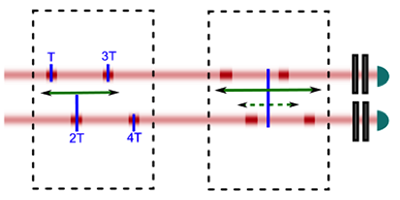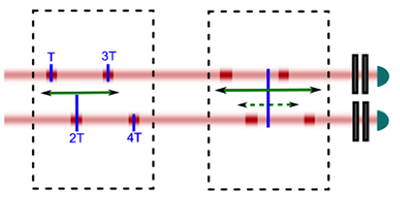Closing Quantum Loopholes
The oddness of quantum mechanics came to the fore in an epic face-off between Einstein and Bohr in the 1930s. On one side, Einstein said that quantum mechanics discards accepted notions of localism (a measurement couldn’t be influenced by a remote experiment) and realism (outcomes of measurements only depend on the thing being measured, not on the measurer). On the other side, Bohr said that’s right, and you’d better get used to it. Writing in Physical Review Letters, Bradley Christensen at the University of Illinois at Urbana-Champaign and colleagues report an experiment that solves one of the major experimental limitations that have denied a definitive win for quantum mechanics.
In the 1960s, John Bell put the debate on a quantitative footing by publishing mathematical inequalities that, if violated, would conclusively rule out any classical theory, local and realistic, as an alternative to quantum mechanics and thus explain observations like entanglement. Many experiments have shown that quantum systems violate Bell’s inequalities, but they are all hampered by at least one of two loopholes. One, the locality loophole, might allow some kind of information to travel from one particle to another. The second is the detection loophole: if the measurement uses a low-efficiency detector, then you might not be sampling all the entangled photons properly.
A recent paper by another group claiming to have closed the detection loophole is disputed by Christensen et al., who have carried out new measurements with a high-efficiency source of entangled photons and high-efficiency detectors. This eliminates assumptions about properly sampling the entangled photons and, the authors say, firmly closes the door on the detection loophole. And it’s not just of academic interest: Bell tests are currently used to verify the security of proposed quantum communications systems, so ensuring their reliability is important. – David Voss





